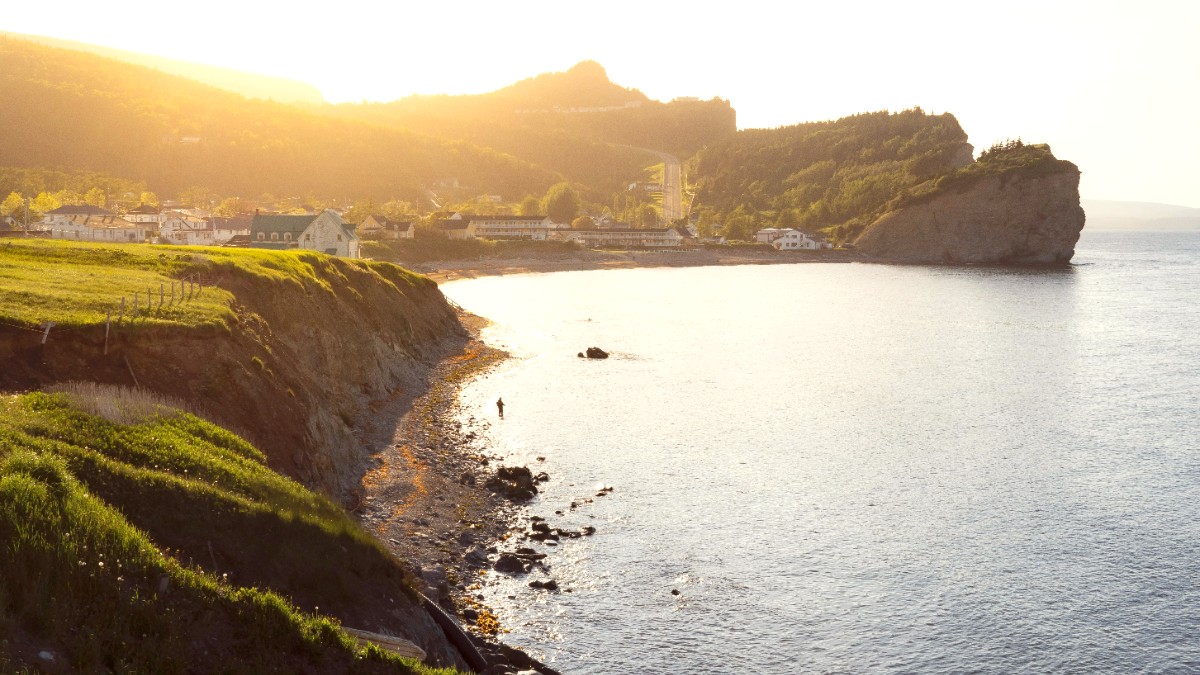
Canada
Minimize your footprint and protect pristine natural beauty.
Respect local customs, traditions, and privacy.
Support local businesses for positive community outcomes.
Sustainable travel minimizes environmental impacts, protecting Gaspésie's natural beauty.
Gaspésie includes Forillon and Gaspésie National Parks, plus provincial parks and wildlife reserves. These areas protect diverse ecosystems. Strict adherence to park rules is important. Stay on marked trails to limit erosion and protect vegetation. Pack out all trash. Never feed wildlife.
Recycling is common. Use designated bins for plastics, paper, glass, and metal. These are available in most towns and accommodations. Water conservation is a responsible practice. Take shorter showers and turn off taps when not in use.
Air travel and car rentals produce carbon emissions. Consider offsetting your carbon footprint through reputable carbon offset programs. Many airlines offer this option directly when booking, or you may choose an independent, certified carbon offset provider.
Seek accommodations or tour operators that show eco-certifications or state their commitment to sustainable practices. These may include renewable energy use, reduced consumption, local and organic food sourcing, and conservation support. Inquire about their environmental policies.
Practice "Leave No Trace" principles: plan, use durable surfaces, dispose of waste, leave discoveries, minimize campfire impacts, respect wildlife, be considerate.
Respectful interactions foster positive connections in Quebec's unique cultural landscape.
Support local cultural institutions, museums (Musée de la Gaspésie, Site historique national de Paspébiac), and artisan shops. These entities work to preserve traditional crafts, the French language, and regional heritage. Participate in local festivals for living traditions.
Learn a few basic French phrases (refer to 11.1). Even "Bonjour" or "Merci" earns appreciation. Be patient with language differences. Be polite, courteous, and respectful of local customs. Observe how locals behave and try to follow their lead.
When photographing, always ask for permission before taking pictures of individuals, especially children, or people engaged in daily work. Respect their privacy. Do not disturb wildlife or natural habitats for photo opportunities. Avoid entering private property without explicit permission. When visiting churches or religious sites, dress respectfully (shoulders and knees covered, if possible). Keep your voice low and avoid loud conversations. Be mindful of ongoing services and posted signs regarding photography.
Ask for consent before photographing individuals.
Avoid private property without explicit permission.
Dress respectfully at religious sites and maintain quiet.
Engaging thoughtfully with local culture creates travel experiences.
Responsible travel directs tourism dollars to local communities, fostering sustainable development.
Seek local, family-run businesses for accommodation, dining, and activities. This includes independent B&Bs, local restaurants, small shops, and tours with local guides. Direct support keeps money circulating within the community, providing livelihoods and strengthening the local economy.
Prioritize locally made crafts and products directly from artisans or small, independent shops. Look for "Made in Quebec" or "Made in Gaspésie" items. Avoid purchasing items from endangered species or those that may exploit local resources or labor. Choose businesses demonstrating transparent and fair practices.
Issues of exploitation are not prevalent in Gaspésie due to Canada's laws. Awareness of ethical consumption is good practice.
If donating, research local charities or community foundations focused on environmental protection, social welfare, or cultural preservation. Seek reputable organizations.